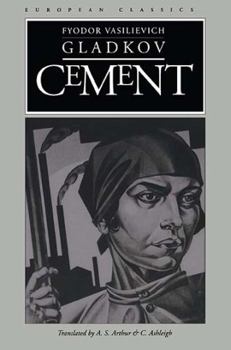Cement
Select Format
Select Condition 
Book Overview
A classic of socialist realism, Cement became a model for Soviet fiction in the decades following its publication in the early 1920s. Gleb, a soldier hero, returns from the revolution to a world in transition, as demonstrated by the reorganization of the local cement factory for the massive national effort. His wife, Dasha, is now a leader of the Women's Section of the Communist Pary, an activist in a society where women are suddenly men's equals. Gleb finds that he cannot easily pick up the threads of their old relationship or adjust to this new social order.
Format:Paperback
Language:English
ISBN:0810111608
ISBN13:9780810111608
Release Date:November 1994
Publisher:Northwestern University Press
Length:311 Pages
Weight:0.74 lbs.
Dimensions:0.7" x 5.1" x 7.7"
Customer Reviews
2 ratings
Cement: A Reminder of a Lost World
Published by Thriftbooks.com User , 16 years ago
"Cement" is a reminder of time when radical socialism seemed possible. We now know that Stalinism was to come down upon the Russian Revolution. But the Bolsheviks did not know what was coming until the true nature of the future bureaucratic state rolled over them in the late 1920's. "Cement" is not a great work of literature, but it is a valuable artifact from the the years before the Five Year Plans and the GULAG crushed naive idealism in Russia.
Sex, love, and Bolshevism
Published by Thriftbooks.com User , 25 years ago
The 1920s was a great decade for Soviet literature: the works published during this era are thematically- and ideologically-diverse. Yes, there are better-written novels that came out during this period. Nevertheless, Gladkov's Cement is under-rated. I find it fun to read and re-read (which is critical, since I end up teaching it a lot) and it's definitively one of the best vehicles for getting at the tensions that plagued the Bolsheviks in the early years. Pairing this with Abram Room's film, Bed and Sofa, is a great way to address questions of gender in the early Soviet Union.





